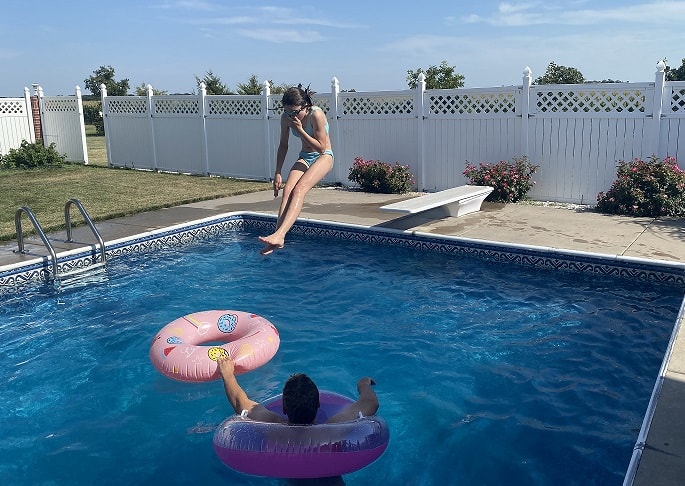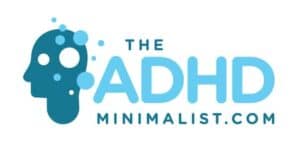
The Power of Understanding Counterwill in Children with ADHD,
Does your child with ADHD sometimes seem defiant, stubborn, or resistant to authority? You’re not alone. Understanding the concept of counterwill can shed light on this behavior and help you support your child in overcoming challenges and thriving.
In this article, we will explore how recognizing counterwill in children with ADHD can lead to better behavior and learning outcomes. We will also discuss effective strategies for addressing counterwill in children with ADHD and empowering them to build resilience. By delving into this topic, you can equip yourself with the knowledge and tools to unlock your child’s full potential.

Recognizing Counterwill in Children with ADHD
Recognizing counterwill in children with ADHD is crucial for parents and caregivers to effectively navigate challenging behaviors and create a supportive environment for their child. Understanding how counterwill manifests in children with ADHD can provide insights into the root causes of certain behaviors, ultimately leading to improved behavior and learning outcomes.
My kids often resist suggestions if they come from me.
Counterwill starts when children are little and you say, ”Please put on your shoes” and they respond by taking off their coat.
Little kids can sometimes be coaxed into doing what needs to be done by reverse psychology. You put your shoes on your hands and say, ”We need to go to the car. I think I’ll walk on my hands today,” and your child may laugh and say, ”Silly mommy your shoes go on your feet!”
Older kids are not so easy. My son (ADHD hyper) had a period (he was nine) when he refused to get in the car. It didn’t matter if we asked him to go to the swimming pool or to get candy. If we wanted him to get in the car he wouldn’t do it. We tried everything from pretending to drive off, to being very understanding, to getting angry. Nothing worked and it took us months to figure out what to do.
It seems to me, after talking to friends about their neurotypical children that my kids (ADHD hyper and ADHD inattentive) tended to stubbornly resist specific requests from my husband and me over and over again. Various friends’ children seemed to exert their counterwill at random while mine were more predictable. My kids didn’t want to sit at the dinner table, didn’t want to get in the car, didn’t want to turn off the TV, etc. Not that they never exerted their counterwill over something unexpected it’s just that I noticed a pattern for certain behaviours.
Counterwill is sometimes obvious and sometimes not. As kids get older they may play along and act like they are ok with the rules you set etc., but they may exert their counterwill by sneaking out at night or taking clothes you deem inappropriate to a party and changing there.
It’s important to have a good relationship with your kids. If they try cutting you off and you notice peers becoming more and more important to your child (especially if it’s friends you’re not comfortable with) it’s time to make a change.

Impact of Counterwill on Behavior and Learning
Counterwill in children with ADHD can have a significant impact on their behavior and learning. When children experience counterwill, they may exhibit defiance, resistance, and oppositional behavior, making it challenging for parents and educators to address their needs effectively. This can lead to disruptions in the classroom, difficulty completing tasks, and strained relationships with authority figures.
The presence of counterwill can hinder a child’s ability to focus, process information, and engage in learning activities.
By recognizing the effects of counterwill on behavior and learning, parents and caregivers can better support their child’s needs and help them thrive in various environments. Strategies for addressing counterwill in children with ADHD will focus on empowering parents and educators to understand, empathize, and communicate effectively with children to foster positive growth and development.
We rely on a close relationship with the schools our children attend. We’ve always had a telephone number for the teacher. I don’t know if they give the number to everyone, but we clarified that your kids have special needs that often require a group effort to make school work for our children and everyone in their class. I call or SMS the teacher if we have a problem at home that they need to know about, and they call me if there is a problem at school.

Strategies for Addressing Counterwill in Children with ADHD
To effectively address counterwill in children with ADHD, it is crucial for parents and educators to have a good relationship with the child. This may sound simple, but we all have an innate desire to please those we love.
Strategies that focus on empathizing with the child, setting clear expectations, and providing appropriate support. can be helpful, but they are all secondary to improving your relationship with the child you are trying to help.
We adapted a strategy from Dr. Gabor Matê (Scattered Minds) to suit our needs when nothing else seemed to help our kids. His idea was to ask your child to spend time with you when they were not begging for attention or acting up. When you ask kids to spend time with you when they are begging etc. they think you just want to get them off your back. That attitude won’t accomplish your goal to get to know your child and improve your relationship with them.
You can read more about the strategies we used to counter counterwill in my book Help! My Room Exploded.
The idea is to take your child out to lunch etc. (do something fun together) every week for at least six months. In the beginning, our son self-sabotaged and the outings were not always fun, but they improved over time. Maybe kids are just testing us to see if we will love them at their worst. Once he quit self-sabotaging it took around nine months of spending consistent time together to see improvement when we asked him to get in the car or sit at the dinner table.
To be clear we took our kids out without siblings. Often one of us took our son (or daughter) out and one of us stayed home with the other kids. Sometimes we got a babysitter and my husband and I and one child went out together.
Other strategies like establishing consistent routines and boundaries to help the child feel secure and understand what is expected of them can be important. Just remember to put your relationship first.
It’s also important to offer choices whenever possible to give the child a sense of autonomy and control, and to provide positive reinforcement for desired behaviors. A supportive and understanding environment can help reduce the likelihood of counterwill.
Additionally, utilizing effective communication techniques such as active listening, validating the child’s feelings, and offering encouragement can foster a positive relationship and encourage cooperation.
By implementing these strategies, parents and educators can help children with ADHD overcome counterwill and thrive in various settings. Building resilience and empowerment in children with ADHD involves improving relationships, nurturing strengths, fostering self-confidence, and helping kids develop coping mechanisms to navigate challenges effectively.

Building Resilience and Empowerment in Children with ADHD
Building resilience and empowerment in children with ADHD involves recognizing their unique abilities and strengths. By highlighting their positive qualities and celebrating their achievements, parents and educators can boost their self-esteem and foster a sense of confidence in their abilities. Encouraging children to participate in activities that align with their interests and talents can further enhance their sense of empowerment and motivation.
Conclusion
In conclusion, by recognizing and addressing counterwill in children with ADHD, we open the door to a world of empowerment and resilience for them. The impact of understanding and supporting counterwill on behavior and learning is profound, offering a pathway to success and growth. Let us take action today to equip these children with the relationships and tools they need to thrive and unleash their full potential. As we strive to build resilience and empowerment in children with ADHD, we are not just shaping their future, but also shaping a society that values and supports all individuals on their unique journey. Remember, every child has the potential to thrive when given the right support and understanding.
